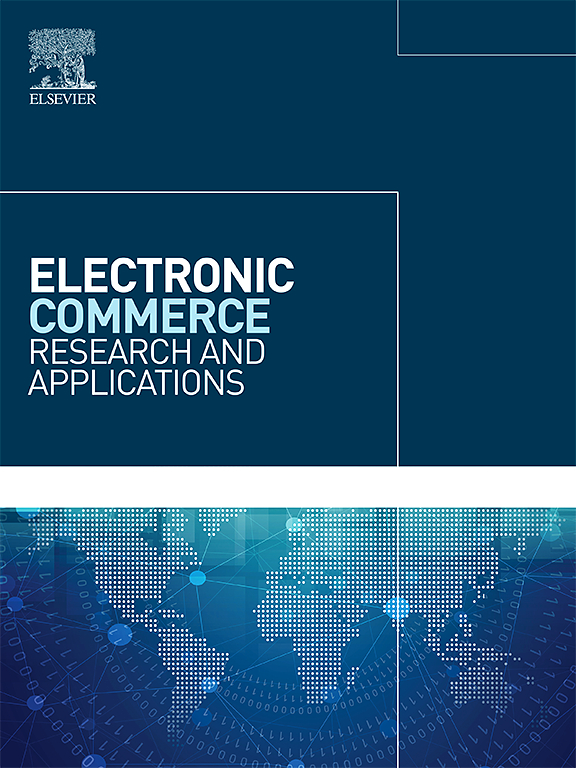Who should provide a trade-in service under the online agency-selling mode?
IF 5.9
3区 管理学
Q1 BUSINESS
Electronic Commerce Research and Applications
Pub Date : 2024-11-01
DOI:10.1016/j.elerap.2024.101454
引用次数: 0
Abstract
In real world practice, trade-in programs are offered by either a manufacturer or an e-commerce platform. Parties that offer a trade-in service are faced with a trade-off between trade-in rebates and the residual income. By adopting the game theory, this paper explored the selection of trade-in provider with respect to a manufacturer and an e-commerce platform. The results show that in some cases, all trade-in models generated higher manufacturing costs than models with no trade-in program. However, in other cases, not all trade-in models can cope with manufacturing costs that are higher than those associated with models that have no trade-in program. Furthermore, both above two firms will offer the trade-ins when profits which they have obtained satisfied a certain condition. We also identified an interesting phenomenon whereby the manufacturer decided whether it wanted to delegate the trade-ins to the e-commerce platform or provide it jointly. The e-commerce platform can decide whether it wants to accept the delegation or jointly offer it. This study also obtain that trade-in models makes customers get more surplus and can produce greater environmental benefits. Moreover, both the customer surplus and the environmental benefits in delegated trade-in model is the same that in jointly trade-in model.
谁应在网上代理销售模式下提供以旧换新服务?
在现实世界中,以旧换新计划由制造商或电子商务平台提供。提供以旧换新服务的各方都面临着以旧换新返利和剩余收入之间的权衡。通过采用博弈论,本文探讨了制造商和电子商务平台对以旧换新提供商的选择问题。结果显示,在某些情况下,所有以旧换新机型的制造成本都高于没有以旧换新计划的机型。但在另一些情况下,并非所有以旧换新模式都能承受比没有以旧换新计划的模式更高的制造成本。此外,上述两家公司都会在获得的利润满足一定条件时提供以旧换新。我们还发现了一个有趣的现象,即制造商决定是将以旧换新委托给电子商务平台,还是共同提供以旧换新。电子商务平台可以决定是接受委托还是共同提供。本研究还得出,以旧换新模式能使客户获得更多剩余,并能产生更大的环境效益。此外,委托以旧换新模式下的顾客盈余和环境效益与联合以旧换新模式下的相同。
本文章由计算机程序翻译,如有差异,请以英文原文为准。
求助全文
约1分钟内获得全文
求助全文
来源期刊

Electronic Commerce Research and Applications
工程技术-计算机:跨学科应用
CiteScore
10.10
自引率
8.30%
发文量
97
审稿时长
63 days
期刊介绍:
Electronic Commerce Research and Applications aims to create and disseminate enduring knowledge for the fast-changing e-commerce environment. A major dilemma in e-commerce research is how to achieve a balance between the currency and the life span of knowledge.
Electronic Commerce Research and Applications will contribute to the establishment of a research community to create the knowledge, technology, theory, and applications for the development of electronic commerce. This is targeted at the intersection of technological potential and business aims.
 求助内容:
求助内容: 应助结果提醒方式:
应助结果提醒方式:


